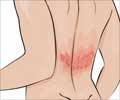Treatment of Allergic Rhinitis
Antihistamines are considered first-line therapy. Intranasal Corticosteroids are the most effective treatments of Allergic Rhinitis (AR).
The best treatment for allergic rhinitis is complete avoidance of the allergens which is practically impossible. Steps should however be taken to reduce exposure. Drug therapy is frequently required. Drugs include:
- Antihistamines
Antihistamines are considered first-line therapy and are the oldest drugs used in the treatment of AR. Many of them are available over the counter without prescriptions. Newer antihistamines cause little or no sleepiness. Loratidine and cetirizine appear to be the most common ones. Azelastine is available as a nasal spray.
- Decongestants
Nasal decongestants like pseudo-ephedrine are used to treat nasal stuffiness. They are commonly used in combination with antihistamines to control the symptoms of AR.
- Intranasal Corticosteroids
Intranasal Corticosteroids are the most effective treatments of AR and are considered the treatments of choice for patients with moderate to severe SAR or PAR. These require prescription from doctors. Drugs include fluticasone, triamcinolone, flunisolide, budesonide, and mometasone.
- Leukotriene Modifiers
Drugs belonging to this class include zileuton, zafirlukast, montelukast and are highly efficient.
- Mast cell stabilizers
Drugs include intranasal cromolyn sodium. These mediate anti-inflammatory activities. No significant side effects are associated with its use.
- Immunotherapy
Immunotherapy involves the administration of gradually increasing doses of the allergen over a period of time to desensitise the patient. It modifies the immune response and treats the cause rather than the symptoms. It is used in patients who are refractory to other modes of therapy. Since it is associated with a small risk of fatal anaphylaxis, it has to be attempted only in a facility where resuscitation equipment and trained personnel are available. Asthmatic patients need extra caution.












